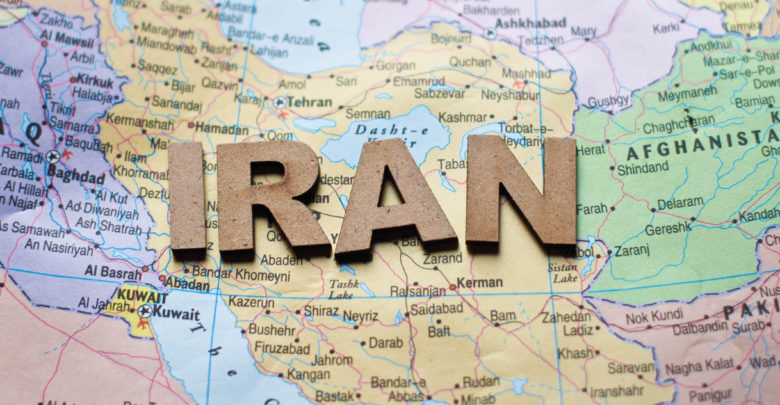Defining “Self-Defense” Down

President Trump and Secretary of State Mike Pompeo are justifying the targeted killing of the commander of Iran’s Quds Force, Qasem Soleimani, in terms that should concern every American.
There are circumstances in which a president is justified in ordering military action to protect the nation from an imminent threat of attack. And targeted killings of military officers who pose that kind of threat have been part of America’s deadly arsenal for decades, although not without controversy.
But a president’s use of military force in the absence of a declaration of war or specific congressional authorization is limited by both the Constitution and statutory law. And there are also international guardrails designed to prevent one nation from launching an armed attack against another except in the narrowest of circumstances.
Let’s start with the U.S. Constitution.
Section 2 of Article II says that the president “shall be Commander in Chief of the Army and Navy of the United States, and of the Militia of the several States, when called into the actual Service of the United States.” However, since Article I of the Constitution says that Congress, not the president, shall have power “to declare War,” any analysis of Trump’s use of military force to kill Soleimani necessarily begins with the question of whether the strike was authorized by Congress.
It wasn’t.
Congress hasn’t declared war against Iran, and Trump neither sought nor obtained specific congressional authorization for the act. The Trump administration has trotted out arguments that the strike was authorized by Congress decades ago, but these arguments are frivolous.
The 2001 Authorization for Use of Military Force, passed days after the 9/11 attacks, provided statutory authority only for the use of force against those who “planned, authorized, committed or aided” the 9/11 attacks. Soleimani and Iran, for all of their evil deeds, had nothing to do with 9/11. The 2002 Authorization for Use of Military Force Against Iraq authorized the use of armed forces only “against the continuing threat posed by Iraq,” not Iran.
But this doesn’t end the discussion. The mere fact that a president’s use of military force wasn’t authorized by Congress doesn’t necessarily make it illegal.
***
Don’t bother looking for a statute or constitutional provision that clearly spells out a president’s authority to conduct a military strike without congressional authorization.
There isn’t one.
The War Powers Resolution of 1973 comes the closest. It provides that in the absence of a declaration of war, or specific statutory authorization, a president can introduce military forces into hostilities or “situations where imminent involvement in hostilities is clearly indicated by the circumstances,” only pursuant to “a national emergency created by attack upon the United States, its territories or possessions, or its armed forces.”
The international authority leads to pretty much the same place. Article 51 of the United Nations Charter recognizes that nations have “the inherent right of collective or individual self-defense if an armed attack occurs against a member of the United Nations.” While the specific language of Article 51 covers only situations where an armed attack has occurred, it has generally been interpreted to apply also to situations in which a threatened attack is imminent, even though said attack hasn’t yet occurred.
But given that neither the War Powers Resolution nor Article 51 of the U.N. Charter defines “imminent,” “clearly indicated,” “national emergency,” or “self-defense,” the question of whether any given use of military force meets those standards is a matter of interpretation.
And therein lies the problem.
Read the language too narrowly, and nations would be unable to respond swiftly and decisively to “ticking bomb” threats.
Read the language too broadly, and nations would be free to justify almost any attack merely by intoning the words self-defense, imminent, and national emergency.
The problem here isn’t so much whether the Soleimani killing was “legal” under domestic and international authority. We don’t yet have all the facts—although it is hard to imagine how killing a single, high-ranking military leader could thwart an imminent attack that had already been planned and mobilized.
The real problem is that the justifications Trump and Pompeo are offering, if accepted as adequate, provide too-broad a standard for the use of force without congressional authority going forward.
As described by Trump and Pompeo, the United States exists in a perpetual state of imminent threat that any president could use to justify any military action, anywhere, against any person, or any country, perceived to be an enemy.
This would be unwise for any normal president. But viewed in the context of a president who literally claims that the Constitution permits him to do “whatever I want,” it’s a standard that is plainly dangerous and destabilizing.
***
The Trump administration’s ever-changing justifications for the Soleimani killing have included: that Soleimani was a bad guy, that Iran is a rogue nation, that they got what they deserved, and that there’s more to come if they don’t change their ways.
While some vague lip service has been given to the idea that America was acting in self-defense against an imminent threat of attack, no such threat has been identified, and no explanation has been offered as to how killing one man could thwart an imminent military strike.
Rather, the overwhelming weight of the evidence suggests that the strike was more about retaliation and an attempt to influence Iran’s behavior in the region with a “no more Mr. Nice Guy” message.
In Pompeo’s words, “We have developed a strategy to convince the Iranian regime to behave like a normal nation . . . that’s what our strategy is about, and we’ve been executing it and we will continue to do so.”
Pompeo mostly dodged questions about imminent threats during his appearances on all five Sunday shows. When he did mention threats, he painted a picture of perpetual threats in a dangerous world, not a specific, imminent threat that had to be stopped by immediate military actions. Here’s what he said:
“There are constant threats. We’ve been we’ve been under threat from the Islamic Republic, Iran, since at least 2015, when the previous administration made the mistake of entering that horrific nuclear deal and gave money and resources to this regime. The threats remain and we’ll continue to take action to respond to them.”
And most of the president’s comments describe the strike as an act of retaliation, not the prevention of an imminent attack. Trump tweeted about ridding the world “of a terrorist leader who had just killed an American, & badly wounded many others, not to mention all the people he had killed over his lifetime.” While he noted, without any specifics, that Soleimani was “preparing for additional hits in other locations,” his major theme has been to describe the strike as both retaliation and “a warning.”
So what Trump and Pompeo seem to be describing is a preventive military strike, not a preemptive strike.
The distinction between the two is crucial. Under international law, a “preemptive” military action to thwart an imminent threat is generally viewed as an acceptable act of self-defense.
“Preventive” military action, taken in response to less immediate threats, is not.
Our enemies around the world are plotting against American interests all the time. That’s why we call them enemies. If that alone were enough to justify taking military action against them without congressional authorization, there would be no limit on a president’s unilateral use of military force.
Does North Korea pose an imminent threat? Russia? China? Syria? Should President Trump—or, if you prefer, the next Democratic president—be free to launch attacks against any of them without a declaration of war or specific congressional authorization?
Congress should not permit this administration to define “self-defense” down to a meaningless concept.
We are already stuck in a decades-long, self-perpetuating cycle of expansion of unilateral presidential war-making power. Each time a president wants to order a military strike without congressional authorization, he obtains a legal opinion from a compliant member of his own team telling him that it’s just fine, no problem. That opinion and the strike it enabled, in turn, become precedent for the next strike. Bit by bit, presidential war-making power expands, unchecked, until Congress has little if anything left of its constitutional power to declare war.
The stakes are too high to permit this to continue. In a world of drones, ballistic missiles, cyber attacks and nuclear weapons, the consequences of an impetuous or injudicious use of military force against a well-armed, determined enemy are too great to be left to a single person in the Oval Office.
We are watching that play out in real time right now as Iran launches retaliatory strikes. Nobody knows what happens next.
The American people deserve a more deliberative process and a voice in the decision to wage war, through their elected representatives. It’s time for congress to reassert its constitutional authority. It should demand full and complete disclosure of the “imminent” threat that triggered the Soleimani killing, if there was one, and then take whatever legislative action is necessary to prevent Trump and future presidents from exceeding their presidential war-making authority.
Whether or not this particular strike was legal is secondary. The question, like so many questions about Trump, is what comes next.




